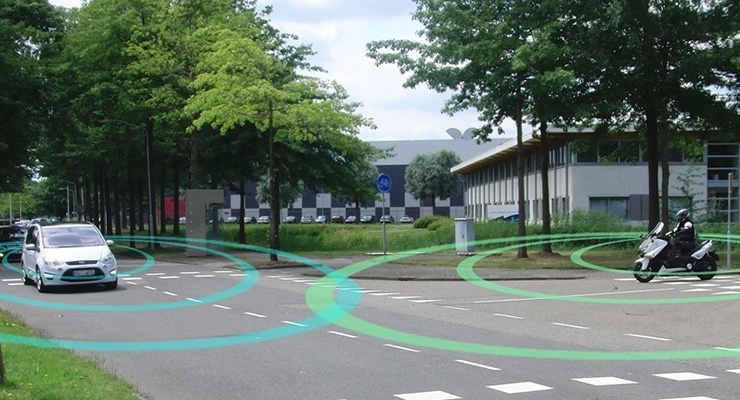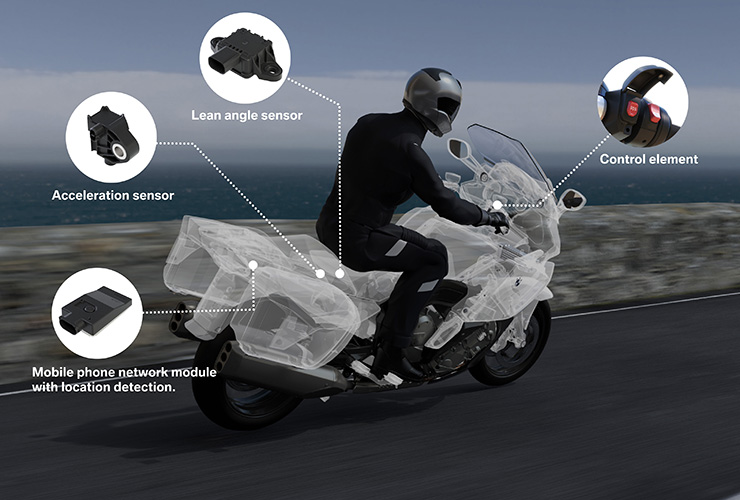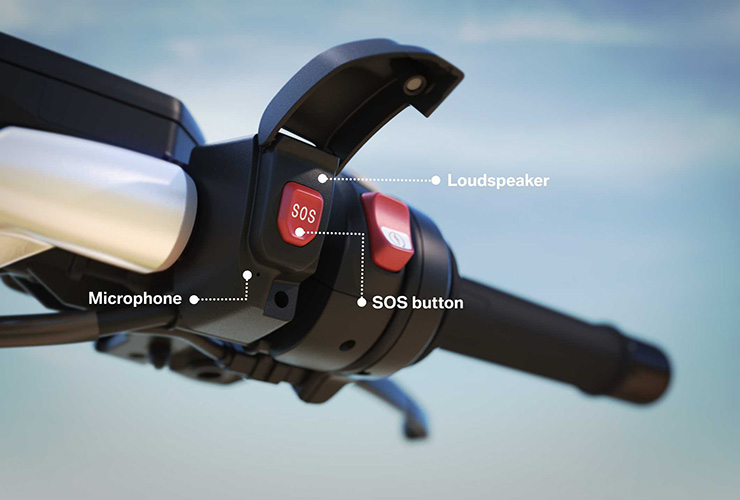Press release | Montreal | 1 November 2017 | Experts from the motorcycle industry, the European Commission, the U.S. Department of Transportation and other organisations met today at the ITS World Congress in Montreal, Canada, to discuss the future of intelligent transport systems and motorcycling. The discussions took place during the ‘Motorcycle talk ITS’ roundtable moderated by the Secretary General of the European Association of Motorcycle Manufacturers (ACEM), Antonio Perlot. The participants examined some of the most important initiatives in the field of connected vehicles as well as as the challenges and opportunities offered by cooperative ITS.

Commenting on the future of technology, Hennes Fischer, senior advisor to Yamaha Motor Europe and member of the Connected Motorcycle Consortium, said: “Vehicle-to-vehicle communication systems will have a considerable effect on motorcycle safety. Technologies such as ‘motorcycle approach indication and warning’ will enhance the digital conspicuity of motorcyclists and reduce the probability of accidents, such as those that happen at intersections because of car drivers overlooking motorcyclists”.
Mr Fischer also explained that “Our industry is working together with other stakeholders in a large-scale European project to set the basis for an embedded eCall system for motorcycles that can operate across the European Union. This project will be completed by the end of the year and will pave the way for a future standard for eCall devices for motorcycles”. Under the European eCall Regulation, the European Commission must be a report in 2021 assessing whether the scope of this regulation should be extended to other categories of vehicles such as motorcycles and mopeds.


Matthias Mörbe, Vice-president for two-wheeler engineering solutions at Bosch, discussed whether motorcycles can be fitted with advanced driver assistance systems (ADAS) developed for cars. In this respect, he said that “powered-two wheelers require a dedicated approach and specific engineering solutions. Intelligent transport system applications designed specifically for cars cannot be directly transferred to motorcycles”.
John Lenkeit, Technical Director at Dynamic Research, an American company specialised in vehicle dynamics and accidentology, stressed that “ADAS for cars should be able to detect all vulnerable road users including motorcycle riders”. As a recent study released by Dynamic Research points out: “If ADAS systems are unable to correctly identify motorcycles, a possible consequence of broad ADAS implementation may be an increase in car-motorcycle accidents even as car accidents decrease”.
Claire Depré, Head of the intelligent transport systems unit of the European Commission said: “As we expressed in our recent GEAR2030 report, the European Commission sees connectivity and increased automation of transport as major trends that are shaping the future of European mobility. We believe that the automotive industry as a whole must embrace the upcoming revolution of digital, automated and connected driving”.
For his part, Robert Kreeb, Chief of the intelligent technologies research division at the U.S. Department of Transportation, said that: “Connectivity and increased automation hold the promise of addressing many of the major challenges facing today’s transport system, such as user safety, energy efficiency, air quality, traffic congestion, and to enhance the drivers’ comfort and convenience. In the long run, automation could have a revolutionary impact on travel behaviour, social inclusion and urban development, environment, entertainment and commerce, growth and jobs.”
Huei-Ru Tseng, Deputy Technical Manager of the Taiwan Industrial Technology Research Institute, said: “C-ITS technologies will give motorcyclists as digital presence, increasing their safety”. He added that ITS systems “must be specifically designed for motorcycle riders”.

Antonio Perlot
In his concluding remarks, the Secretary General of the European Association of Motorcycle Manufacturers, Antonio Perlot said: “There is no doubt that connected vehicles will play a major role in increasing transport efficiency, sustainability and mobility in Europe. Cars and motorcycles must be part of this new connected world”.
Panelists of the event
- Claire Depré. Head of Unit, Intelligent Transport Systems, DG MOVE, European Commission.
- Bob Kreeb. Chief, Intelligent Technologies Research Division, U.S. Department of Transportation, National Highway Traffic Safety Administration.
- Huei-Ru Tseng. Deputy Technical Manager, Taiwan Industrial Technology Research Institute.
- Hennes Fischer. Senior Advisor to Yamaha Motor Europe / Japan. Member of the Connected Motorcycle Consortium.
- John Lenkeit. Technical Director at Dynamic Reserach Inc.
- Matthias Mörbe. Vice-president for two-wheeler and power sport engineering solutions at Robert Bosch GmbH.
About ACEM
The European Association of Motorcycle Manufacturers (ACEM) represents manufacturers of mopeds, motorcycles, three-wheelers and quadricycles (L-category vehicles) in Europe. About 156,000 jobs depend on the L-category industry in Europe. There are about 35.3 million motorcycles and mopeds on Europe’s roads.
ACEM members include 18 manufacturing companies: BMW Motorrad, Bombardier Recreational Products (BRP), Ducati Motor holding, Harley-Davidson, Honda, Kawasaki, KTM, KYMCO, MV Agusta, Peugeot Scooters, Piaggio, Polaris Industries, Renault, Royal Enfield, Suzuki, Triumph Motorcycles and Yamaha. ACEM also represents 17 motorcycle industry associations in 14 different European countries.
About the CMC
The CMC is an R&D platform to foster cooperation in research and development in the field of C-ITS. It is open to a wide range of organisations including motorcycle OEM, automotive companies, automotive part suppliers and research institutions. The key objective of the CMC is to promote timely and comprehensive use of C-ITS systems offering the potential to improve safety for motorcyclists.
The CMC was created in 2016 by BMW Motorrad, Honda and Yamaha. Since then, more members have joined the consortium: Kawasaki, KTM and Suzuki (development members) as well as ACEM, the Technical University of Dresden, the Technische Hochschule Ingolstadt, VUFO GmbH and the Würzburg Institute for Traffic Sciences (associate members). For more information about the CMC please visit www.cmc-info.net
Source: Press release ACEM – The European Association of Motorcycle Manufacturers